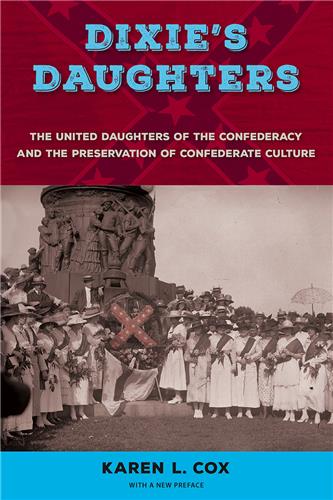Black Manhood and Community Building in North Carolina, 1900–1930
Angela Hornsby-Gutting
Paper: $27.95
"Hornsby-Gutting's examination of the involvement of black men in the institutional life of their turn-of-the-century North Carolina communities expands our understanding of gendered activism in the Jim Crow South."--Beverly G. Bond, University of Memphis
Historical treatments of race during the early twentieth century have generally focused on black women's activism. Leading books about the disenfranchisement era hint that black men withdrew from positions of community leadership until later in the century.
Angela Hornsby-Gutting argues that middle-class black men in North Carolina in fact actively responded to new manifestations of racism. Focusing on the localized, grassroots work of black men during this period, she offers new insights about rarely scrutinized interracial dynamics as well as the interactions between men and women in the black community.
Informed by feminist analysis, Hornsby-Gutting uses gender as the lens through which to view cooperation, tension, and negotiation between the sexes and among African American men during an era of heightened race oppression. Her work promotes improved understanding of the construct of gender during these years, and expands the vocabulary of black manhood beyond the "great man ideology" which has obfuscated alternate, localized meanings of politics, manhood, and leadership.
Angela Hornsby-Gutting is assistant professor of history at the University of Mississippi.
No Sample Chapter Available
"Highly recommended for shedding light on a vital yet overlooked aspect of North Carolina's history and social evolution".
--The Midwest Book Review
"An invaluable contribution to the field."
--The Journal of American History
"A strength of this study stems from the author's access to often restricted resources, including personal papers and oral interviews. Her success in securing interviews and retrieving usually secretive information is commendable. Hornsby-Gutting has given us another avenue to explore how self-reliance, self-determination, and self-sufficiency affected southern African American culture and activism during the opening decades of the twentieth century."
--The Journal of Southern History Vol. LXXVI, No. 4
Using archival material from various sections of North Carolina, Hornsby-Gutting expertly weaves together a history previously lost. Persuasively, she notes that black men sought to move forward by "fashioning an African American manhood characterized by dignity and authority that would prove uplifting to their manhood and to the black community overall." Her analysis reveals that these values, standards, and activities fostered political projects for their descendents who were able to defeat Jim Crow. By analyzing the activities of black men through their interactions with black women, Hornsby-Gutting debunks the myth that African American men offered little in the way of leadership during these decades. She restores African American men to their rightful place as active participants in the struggle for racial equality.
--Journal of African American History, Vol. 96, No. 1
Seeks to revise our thinking about black male political activities at the beginning of Jim Crow. With this work, Hornsby-Gutting makes the first three decades of the twentieth century a moment in time when middle-class blacks threatened by Jim Crow violence also found ways to redefine themselves and challenge white oppression.
--The North Carolina Historical Review
A successful study of black manhood in the South at the turn of the century.
--Southern Studies
An important contribution to the grand narrative of black gendered leadership in the early twentieth century.
--Louisiana History












